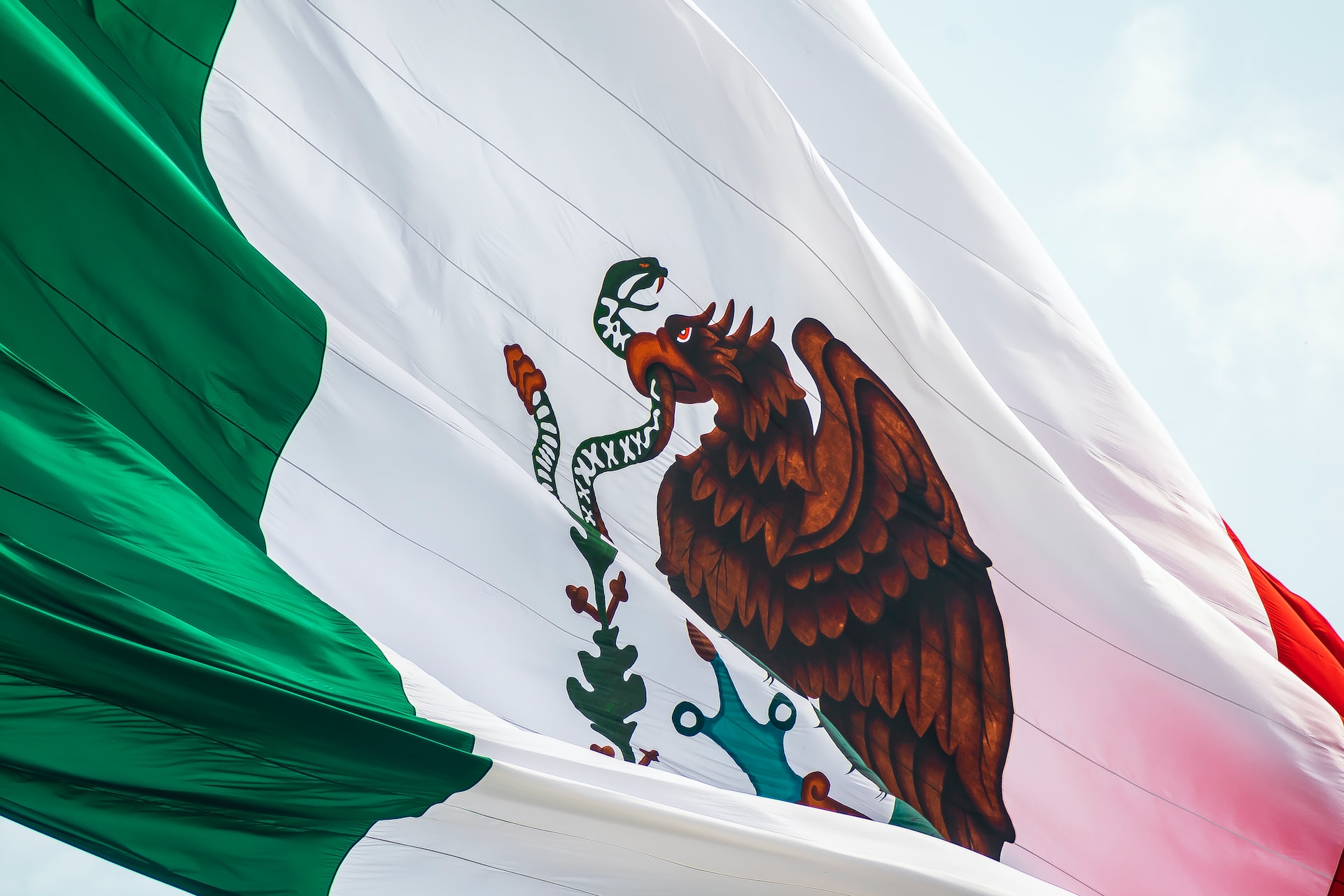Natalia Rebollo and Jesús Alonso Olamendi | 24 January 2023
On March 8, 2022, an Indigenous person belonging to the Murui-Huitoto community of Colombia was arrested at the Mexico City international airport for importing ayahuasca. The following day, an Indigenous member of the Shipibo-Konibo tribe of the Peruvian Amazon was arrested. Since then, there has been a wave of arrests for transporting ancestral medicines. People are being accused of bringing narcotics into Mexico which carries a prison sentence of eight to twenty-five years. Two Mexican women were arrested two weeks later and sent to the Santa Martha Acatitla Women’s Prison. Later another Indigenous person from the Noke Koi tribe from the Acre region of Brazil was arrested along with two Mexicans. Finally, another Peruvian citizen identifying as Quechua-Ashaninka was arrested by Mexican authorities upon entering the country in September. So far, eight people in total have been arrested in recent months for allegedly bringing narcotics into the country.
It is essential to mention that ayahuasca is not a controlled substance under the Mexican General Health Law, nor in international drug control treaties. In Peru, the brew is considered a Cultural Heritage of the Nation. In Colombia, its use by Indigenous peoples is protected by the Constitution, and its use is permitted and protected for religious purposes in Brazil.
However, legal confusion has given rise to a series of human rights violations. The main legal issue is due to the presence of N,N-dimethyltryptamine (DMT), which is naturally found in the ayahuasca brew. However, plant-based DMT is not controlled under the United Nations International Drug Control system, which includes the 1961 Single Convention on Narcotic Drugs, the Convention on Psychotropic Substances of 1971, and the 1988 United Nations Convention against Illicit Traffic in Narcotic Drugs and Psychotropic Substances. All of these acts have been signed and ratified in Mexico.
The 2010 Annual Report of the International Narcotics Control Board (INCB), the quasi-judicial body responsible for the implementation and interpretation of the United Nations drug control treaties, stated that “Under the 1961 Convention and that Convention, as amended by the 1972 protocol, plants that are sources of narcotic drugs, such as cannabis, opium poppy, and coca leaf, are subject to specific control measures. In contrast, although some active ingredients with stimulant or hallucinogenic effects contained in certain plants are controlled under the 1971 Convention, no plants are currently controlled under that Convention or under the 1988 Convention. Nor are preparations (e.g. decoctions for oral consumption) made from plants containing such active ingredients under international control”.
Similarly, the INCB reiterated this approach in its 2012 Annual Report, “At present, no plants, including the ones containing psychoactive ingredients, are controlled under the 1971 Convention, although the active ingredients they contain are sometimes subject to international control. For example, cathine and DMT are psychotropic substances included in Schedule I of the 1971 Convention, while the plants and plant-based preparations that contain them, namely khat and ayahuasca, respectively, are not subject to any restrictions or control measures.” The INCB has confirmed that the only three plants considered illegal internationally are cannabis, opium poppy, and coca leaf.
To give national context, Article 245 of the Mexican General Health Law contains five major groups classifying psychotropic substances related to the control and surveillance measures adopted by the health authorities. Neither Banisteriopsis caapi nor Psychotria viridis (two plants commonly found in ayahuasca brews) are included on these lists. In contrast, in List IV of Article 245 of the General Health Law, Lophophora williamsii (peyote or hikuri) and all varieties of psilocybin mushrooms are controlled (except for use by Indigenous peoples). However, none of the plants that make up ayahuasca are included, so considering them an illicit substance would imply a violation of the rule of law.
It is important to mention that DMT is a substance endogenously produced by the human body, which acts as a neurotransmitter related to dream visions and even with ordinary sensory perception. It is naturally present in the plant and animal kingdoms. Therefore, it is inaccurate for the Mexican Federal Criminal Code to consider natural DMT a controlled substance.
The INCB itself has reiterated that, in addition to the only three plants that are subjected to control, the other components contained in the international drug control treaties only correspond to their synthesized or chemical versions. DMT of natural origin is present in the plant kingdom and found in oranges, tangerines, and various trees endemic to Mexico, such as tepezcohuite.
Currently there are only four countries in the world where ayahuasca is considered illegal. It is illegal in France and Italy because Banisteriopsis caapi and Psychotria viridis were explicitly included in drug legislation. In the Netherlands, the Supreme Court decided to limit the exercise of religious freedom by restricting the use of ayahuasca. Russia also explicitly included B. caapi in its list of illicit substances.
In the coming weeks, ICEERS will actively participate in the first trial related to ayahuasca in Mexico as both scientific and legal experts. The goal is to demonstrate the pharmacological and legal distinction between ayahuasca and DMT. Additionally, the available scientific evidence shows ayahuasca is not a substance that causes serious harm to public health. It is also not a controlled substance under Mexican law.
ICEERS has engaged in dialogues on human rights with the Ministry of the Interior to provide them with case information and to guarantee adequate conditions for the eight people in prison. Steps have also been taken with the National Institute of Indigenous Peoples in Mexico to monitor and support cases involving members of Indigenous groups. These actions have been done in conjunction with other governmental spheres and members of the Mexican Congress to present the status of ayahuasca in Mexico and the international context.
The ICEERS Ayahuasca Defense Fund (ADF) has supported everyone facing criminal proceedings in Mexico for ayahuasca. We will continue to support legal teams in building and strengthening the defense of plant medicine cases and approaching all the authorities that allow it. We hope that justice in Mexico shifts towards reason and basic human rights.
Proactive Strategies in the Mexican Senate
Alongside the legal developments, the ADF team has collaborated with Mexican Senator Alejandra Lagunes in an effort to create a path toward the regulation of psilocybin-containing mushrooms. The goal is to approach this process from a perspective that honors and recognizes the resilience of Mexican Indigenous peoples in preserving their ancestral knowledge and relationship with plants and mushrooms. During this time, the ICEERS team has participated in the forums organized in the Mexican Senate and has collaborated in drafting the proposed law which consulted leaders of the Mazatec nation.
Thanks to this collaborative relationship, ICEERS co-organized the Intercultural Forum on Entheogenic Medicine on January 24 and 25, which will take place in the Mexican Senate. It will include the participation of Indigenous leaders from the Yaqui Tribe, the Mazatec Nation, and Noke Koi communities of Brazil. The goal is to address the intercultural and multidisciplinary richness that surrounds the ancestral connection to psychoactive plants and mushrooms that are fundamental in the Indigenous cosmovisions in Mexico and the Latin American region.
Given the scenario that eight people are in prison in Mexico for ancestral plants (four of them being Indigenous), this forum presents an opportunity to establish a dialogue in Mexican legislation focused on protecting and preserving naturally-derived entheogens, as well as the ancestral knowledge surrounding them.
Mexico is facing a historic opportunity to reverse past situations that have colonized the legal system by classifying mushrooms as prohibited substances due to the implications of international drug control treaties, despite their longstanding cultural and traditional significance safeguarded by Mexican Indigenous peoples. These advances in the regulatory field contrast with the persecution of ayahuasca, and the violation of the rights of those in prison waiting for their trial to be heard in court. Reconciling these two positions and creating a new understanding of the legality and benefits of plants and mushrooms represents an essential part of the ICEERS mission.
Further Resources
- 5 Things to Know About the Ayahuasca Defense Fund
- ADF Support Criteria
- How We Support Legal Incidents
Photo by Jorge Aguilar on Unsplash.
Categories:
Featured ADF
, NEWS
, Ayahuasca
, ADF
Tags:
legality
, ayahuasca
, Ayahuasca Defense Fund
, psilocybin
, mushrooms
, psilocybin mushrooms
, trial
, México



